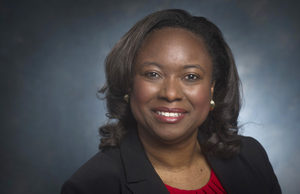By Monica Baskin
COVID-19 has brought newfound attention to an enduring problem in Alabama and the U.S. – the deadly consequences of racial disparities in health care.
Recent UAB research found that Black individuals experience COVID-19 infections at three times the rate of whites, with twice the rate of death. This disproportionate impact is true across the U.S. and is related to systemic racism that creates barriers to health care and contributes to higher rates of chronic disease.
These structural issues may be more evident because of COVID-19. But they are all too familiar in Alabama.
Our state ranks near the bottom in terms of overall health, measured by life expectancy and quality of life. But our African-American population suffers more than its share of the problem. Broadly speaking, Black Alabamians tends to live in poorer communities with less access to care, which plays out in every aspect of their health. For instance, the mortality rate for Black infants was, until very recently, twice that of white infants.
When it comes to cancer, a disease that will kill nearly 11,000 Alabamans this year, the Alabama Comprehensive Control Coalition notes that our Black, Brown and rural populations are more likely to be diagnosed with and/or die from preventable cancers, receive no treatment for their cancer, and receive care not appropriate for their cancer.
This was true before the pandemic, and if anything, COVID-19 has exacerbated the problem. The number of cancer screenings fell markedly while Americans were staying home to protect themselves from the virus. While screenings have begun trending back toward pre-pandemic levels, the impact of delayed care won’t be known for some time.
We know that delayed cancer detection results in poorer outcomes. If you catch cancer before it spreads throughout the body, the five-year survival rate is near 90 percent; catch it too late and this number plummets to just over 20 percent.
Throughout our community, we hear tragic stories of cancer found too late. I’m no exception. When I was a senior in high school, my father was diagnosed with colorectal cancer and died just a few months later. The loss I experienced inspired my life’s work of fighting cancer.
At UAB’s O’Neal Comprehensive Cancer Center, I do everything in my power to promote early detection and to make sure all people have access to the tools that allow us to diagnose cancer at the earliest possible stage, when treatments have the best chance of success.
For African-Americans, early screening tools like mammograms and colonoscopies are critical to improving outcomes. But we must also address roadblocks that stand in their way. It may mean finding transportation for rural residents who have to get to the closest city for care. Or making sure we offer alternatives for people who can’t miss part of their workday without losing pay.
The good news is that technologies on the horizon have the potential to not only improve early detection of cancer but also to address some of the systemic healthcare barriers often faced by communities of color.
At the O’Neal Comprehensive Cancer Center at UAB, our goal every day is to eliminate cancer as a threat to our entire community’s health.
Even in a challenging year like this one, where we are all facing a new medical and public health threat, we can’t lose sight of the old ones that continue to cause too many needless deaths – including undetected cancers and racial barriers to care.
Monica L. Baskin, Ph.D., is Associate Director for Community Outreach and Engagement at the O’Neal Comprehensive Cancer Center at UAB.
Updated at 5:01 p.m. on 1/28/2021 to correct Dr. Baskin’s title.




